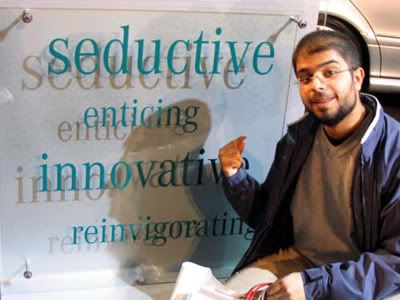Just a sec...
A while ago, I read a story on a recent EU Report that expressed concern about how Israel is illegally annexing Arab areas of East Jerusalem, against both international law and the Roadmap peace plan. Nothing new there - we already know that Israel has been breaking several international laws for years.
To me, the most interesting part of the story is the final paragraph. Israeli Foreign Ministry spokesman Mark Regev refers to the whole unrest as the "Israel-Palestinian" issue. In so doing, he disregards the existence of a Palestinian state and reduces Palestinians to a people without a home, whilst simultaneously stamping the authority of the Israeli state firmly in the listener's mind. Clever.
It's subtle, but that's how Israel wins the media war. Of course, they're not always so subtle. I mean, come on - who could honestly call a 10-foot concrete wall with ditches, guard towers and barbed wire a "peace fence", as they initially tried to name it. That didn't wash with anybody, so then they tried "security fence". But people know fences as nice, pretty and residential. The media has come to use the term "security barrier", which is only marginally better. I find that "apartheid wall" is closer to the truth, or perhaps "blatant land-grabbing and degradation - up yours wall".
But I'd better be careful or I'll be branded as an extremist.





